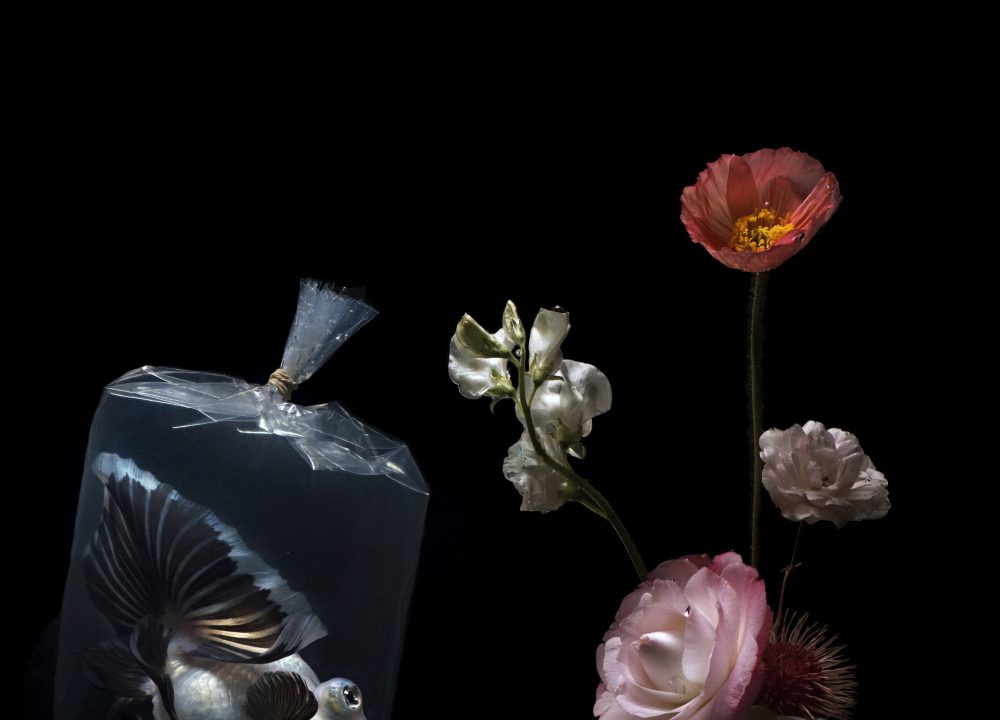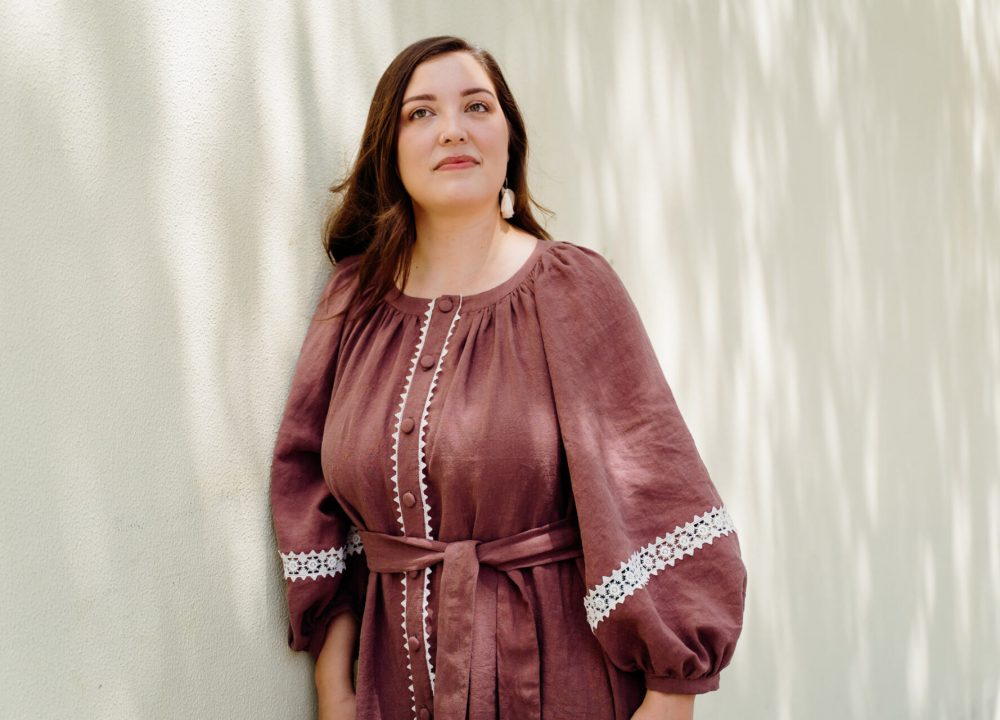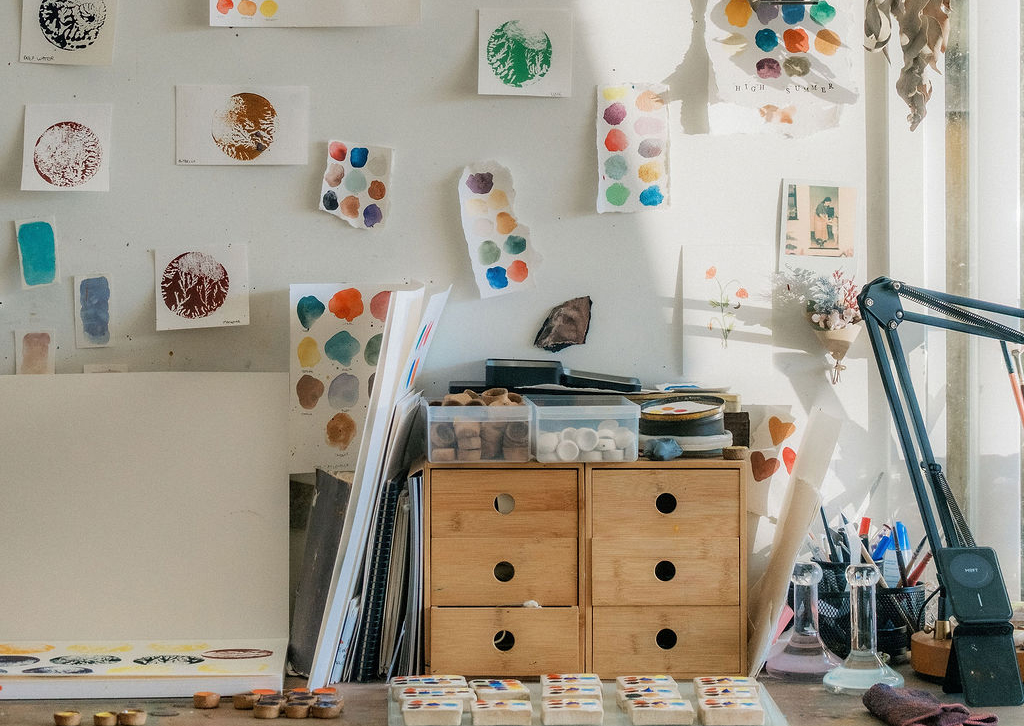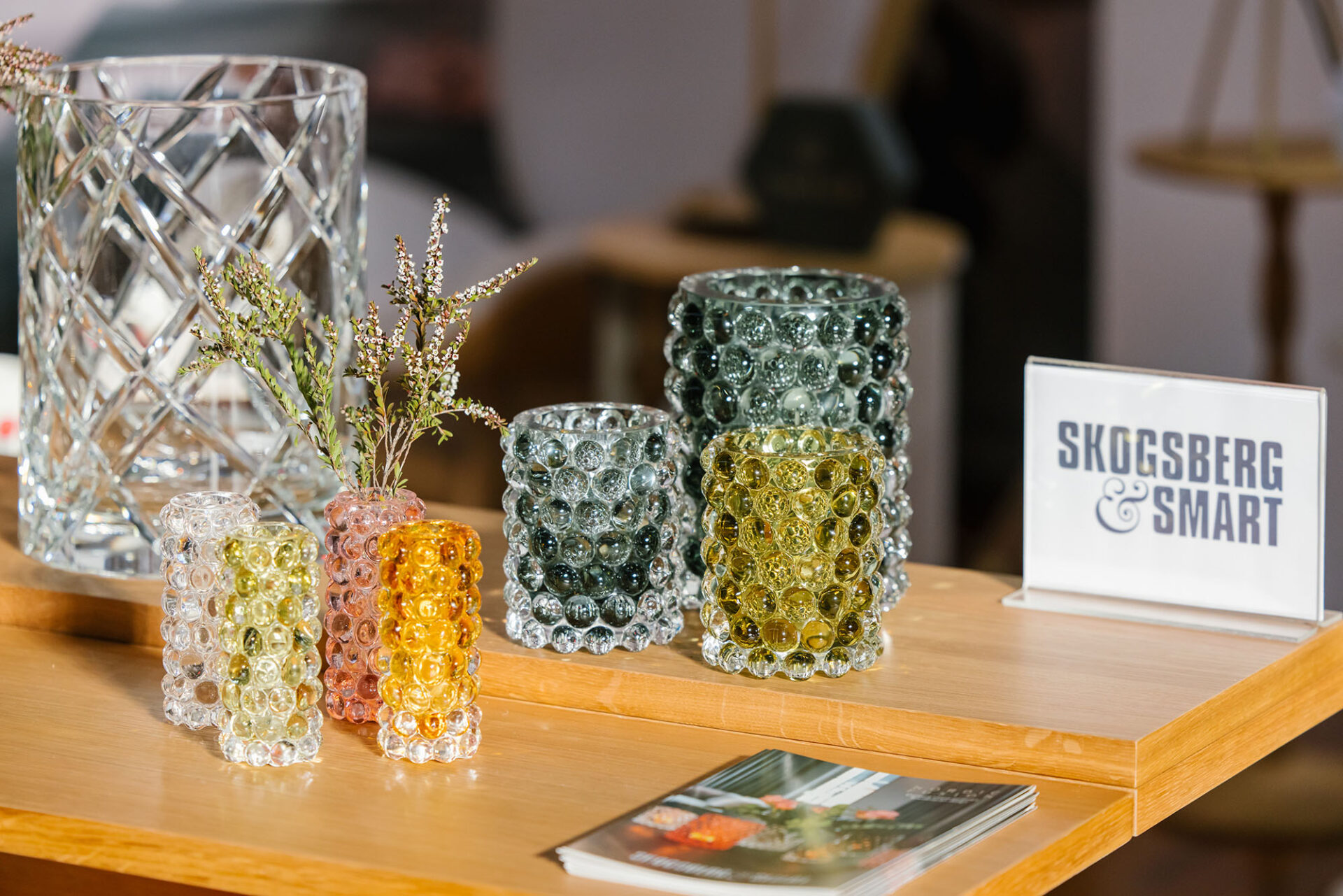Take five: Lilli Waters

- Words by Peppermint
We love art that stops you in your tracks and makes you really think, and lucky Melburnians can do just that at Plastic Fish – an exhibition that juxtaposes the wonder of the natural world with the decidedly un-wonderful impact of man-made waste. For her third solo exhibition, Australian photographer Lilli Waters has created artwork that looks like classic, still-life portraiture but contains a lurking (and very modern) danger. On the eve of the exhibition’s launch, we had a chat with Lilli about her inspiration, her process and the damaging impact of a consumerist society.
What was the inspiration behind the series?
Sometimes a body of work comes from a thought of “would this be possible?” In this case, how could I photograph flowers underwater? This first idea merged with a fascination with the other-worldly beauty and fragility of underwater creatures – now more fragile and precarious than ever due to man’s impact.
How do the photographs reference our impact on the natural world?
At first glance these images appear to be reminiscent of still-life paintings – colourful and vibrant – but hidden (and sometimes not so hidden) are manmade materials like plastic, which has found its way into every corner of our planet. The plastic itself has a certain beauty, but inherent in its presence is a darker, more destructive side.
Having worked on the project, what are your feelings on our disposable culture?
We live in a time where things aren’t made to last, and consumerism is the driving force behind our society. Objects we buy need to break regularly and be replaced for the system to keep functioning, which is quite bizarre when you think about it. Not to be too bleak, but we are destroying the planet at a pretty alarming rate.
Can you tell us about the process of taking the photos?
Mostly I use natural light for my photoshoots. In this case, it was shot in a studio using artificial lighting and after months of planning – the series required a lot of patience and problem solving to get everything in its right place. There were many visits to markets and aquariums to find inspiration.
What message do you hope people will take from the exhibition?
The kind of art I am most drawn to generally doen’t have an obvious message and can mean multiple things. So while there was a certain inspiration behind these images for me, I’m more interested in the emotional response in the viewer.
Plastic Fish is running at Junior Space Gallery, 65 Smith Street, Fitzroy from 21 September to 4 October.
JOIN OUR MAILING LIST
Brighten up your inbox with our not-too-frequent emails featuring Peppermint-related news, events, competitions and more!
explore
More articles
Dreaming of a flowy, blousy dress with beautiful details to take you through sunny days and beyond? Same babe, same – so we designed it! The Daisy Dress offers a bounty of fun features and styling options which allow you…
It’s beginning to look a lot like Christmas…. Which means we are officially entering party season. Work parties, friend-dos, family get-togethers and then we’re straight…
Look, I don’t want to make anyone panic but IT’S DECEMBER!!! If you’re planning to give homemade gifts, you’re going to have to act fast. …
Hang out with us on Instagram
Wrap dress wardrobe malfunction? Not with the Peppermint Waratah Wrap Dress pattern!
Our number one complaint is wrap dresses flying open in the wind, leaving you clutching a handful of skirt in your paw to avoid a public indecency offence. So we designed the Waratah to make sure this never happens. 🌪️
And yes, you could say we had a lot of fun on this shoot! 😆
MODELS/SEWISTS: @Melt.Stitches, @KatieMakesADress @Tricky.Pockets
Head to the link in bio for the #PeppermintWaratahWrapDress 🪡
#PeppermintPatterns #SewingPattern #MeMade #WrapDress

Secret pjs all day everyday!
How sweet is this version of our Samford Set pattern - created in collab with Lindsey of @SewToGrow 😍
From @Claire.Creates.Clothes:
🟤🟣🟢 Colour spot blocking pregnancy friendly set 🟢🟣🟤
I wanted some #secretpyjamas that I can wear on the couch when I’m pregnant and after for breastfeeding, with a top that I can wear out of the house. Welcome the #PeppermintSamfordSet
I made the Samford set top in a size F, one size up from my current bust and it’s the perfect amount of room for my expanding tummy, and will hopefully not be crazy oversized after pregnancy. I used a spotted linen that used to be considered good fabric, blocked with a organic linen sheet that was gifted to me for the sole purpose of being fabric by the lovely @heather_steenholdt
The top came together super quickly and has already had lots of wear - couch, dinner and work ☑️ I even attached the buttons within a week of starting the project, who am I?!
I already had the shorts in the rust linen but never wear them because I don’t like the length or shape at all - they were a pants pattern that I just made shorter. So I cut them to have an inseam of 2.5” and added a 1.5 length ruffle cut at 3” in the contrast spot linen and love them so much more already. Although the shorts will now just be reserved for in house.
I’ve already planned 2 more Samford sets, but will size down to get more post pregnancy wear. And will tackle the pants!
Special thanks to Laura at @peppermintmagazine for sending me the Samford set instructions, you motivated me to put the buttons on before the baby actually arrives! 😁
Pattern: @PeppermintMagazine Samford set top
Size: F
Fabric: Linens
#PeppermintPatterns #PyjamasAllDay

“We are in unprecedented times in the United States, at least in terms of having a government who openly and unabashedly disparages, rejects and causes harm to trans folks and other marginalised groups, including immigrants. So my team decided I should make a piece of art that included the words ‘You Belong Here’ that people could hang in their homes, and this piece was born.” @LisaCongdon 💕
These words were spoken by Lisa in our latest issue, and they are now more relevant than ever. Our latest issue is full of creativity, inclusivity and belonging. Our cover is the front door, welcoming you into our house of hope. You are welcome. You are valued. Take a seat at our table.
YOU BELONG HERE. 🫶
Issue 64 cover artwork by @LisaCongdon
At newsagents and stockists now.
#PeppermintMagazine #EqualRights #LGBTQI+ #Equality #YouBelong

As issue 64’s gorgeous cover artwork by artist @LisaCongdon proudly proclaims: you belong here. Yet for trans and non-binary people, acceptance still remains hard won – and increasingly under threat.
In our latest issue, we spoke to actress and transgender rights advocate @GeorgieStone, multi-hyphenate life coach, pilates and meditation teacher, diversity educator and runway model @RudiLandmann, artist and seven-time Archibald finalist Kim Leutwyler (@CarlosBob) and multidisciplinary artist Sunday Jemmott of @SundaysArtClub about their wins and worries – and why belonging matters deeply.
Read more from our ‘Transforming the Narrative’ feature in issue 64, at newsagents and stockists now!
Photos: @NickCog, @KateLukePhotography for @DangerousFemales, Kim Leutwyler, @RissVisualStudio
#PeppermintMagazine #YouBelong #TransLivesMatter #NonBinary #HumanRights

Who’s going to the sold out Liberty Fabrics Showcase in Brisbane or Melbourne? 🙋♀️
To say we’re excited is an understatement! Maybe we’re biased because our lovely Laura (Sewing Manager) is walking in the fashion parade along with many other incredible sewists in our community, but also - there’s SO many good things: retail stalls featuring exclusive products, rare finds and all things @LibertyFabrics, and sneak peeks at brand-new quilting and fashion collections, including the Liberty Fabrics Spring/Summer ‘Floral Rebellion’ collection.
Also - Liberty legends Mary-Ann Dunkley (Head of Design) and Anna Buruma (ex-Head of Archive) are flying in from London especially!
Keep an eye on our socials this weekend for BTS! 🌸🌼🌺
Brisbane 7/2/26
Melb 14/2/26
From @Laura_The_Maker:
If you know me irl then you probably know that I only do one take for my reels so enjoy this vid of me saying thousands of words about an exciting collaboration I’m participating in for 2026!
Thanks to the teams @2GreenZebras @Regent_Street_Fabrics and @StyleArc for including me on the runway. I absolutely can’t wait!
Obviously I’ll be hoping for enough scrap fabric to make some kind of accessories…
#libertyfabrics #libertyfabricsshowcase

🌻 The Paddington 🌻
This is a much-loved staple, created for Issue 50 in 2021. We love seeing the #PeppermintPaddingtonTop continually popping up in our feeds!
How stunning is our model Elon MelaninGoddessEfon – she told us it was one of the first times she had been asked to come to a shoot with her natural hair. 🌻
We worked with South African patternmaker Sarah Steenkamp of @FrenchNavyNow_ to create this wardrobe essential – the perfect puff-sleeve blouse. Raglan sleeves make it the ultimate beginner sew, plus the gorgeous back buttons let you add your own personal twist.
Pattern via the link in bio! 🪡
Photos: @KelleySheenan
Fabric: @Spoonflower
Model: MelaninGoddessEfon


















